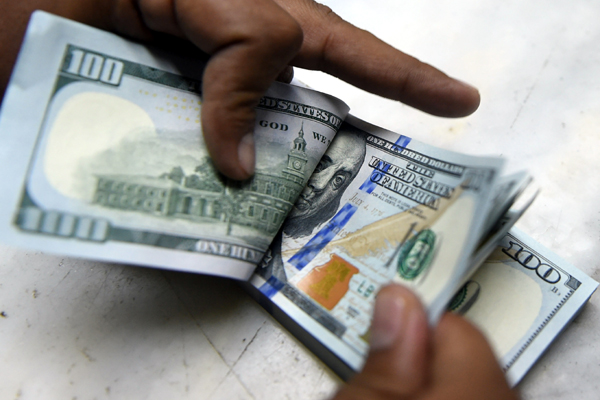
SINGAPORE: The dollar touched a one-week low versus the yen on Tuesday as investors turned cautious following news that investigators probing Russian interference in the U.S. election had charged President Donald Trump’s former campaign manager.
The yen showed limited reaction after the Bank of Japan kept its monetary policy steady on Tuesday as widely expected, even as it slightly cut its inflation forecast for the current fiscal year.
The dollar held steady at 113.17 yen, having slipped to as low as 112.97 yen in early Asian trade, its lowest level since Oct. 20.
Federal investigators probing Russian interference in the 2016 U.S. election charged Trump’s former campaign manager, Paul Manafort, and another aide, Rick Gates, with money laundering on Monday.
Neither Trump nor his campaign was mentioned in the indictment against Manafort and Gates. But the latest developments in the investigation pressured the dollar, said Stephen Innes, head of trading in Asia-Pacific for Oanda in Singapore.
“It’s weighing on dollar/yen a little bit. I think there’s a little bit of uncertainty,” Innes said.
The dollar also struggled in the wake of reports that Trump was likely to pick Federal Reserve Governor Jerome Powell as the next head of the U.S. central bank.
Powell is seen as being more dovish on monetary policy than other contenders for the post, especially compared to Stanford University economist John Taylor, who has been regarded as another top challenger for the position.
Against a basket of six major currencies, the dollar was steady at 94.583, down from a three-month high of 95.150 scaled on Friday.
The euro eased 0.1 percent to $1.1635, but held above a three-month low of $1.1574 touched on Friday.
Elsewhere, the Australian dollar was weighed down after China’s official factory PMI showed growth in its manufacturing sector cooled more than expected in October.
The Aussie, which is sensitive to Chinese economic data due to Australia’s strong trade ties with the Asian giant, was down 0.1 percent on the day at $0.7677. Beijing’s crackdown on winter air pollution could curb imports of resources from Australia such as iron ore and coking coal.
Source: Brecorder.com




























